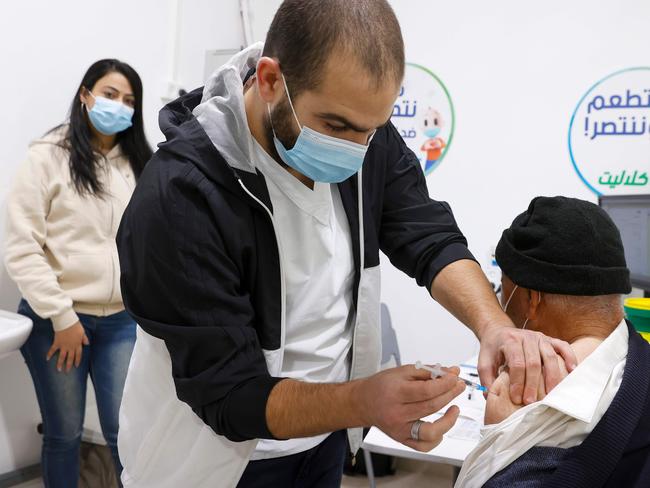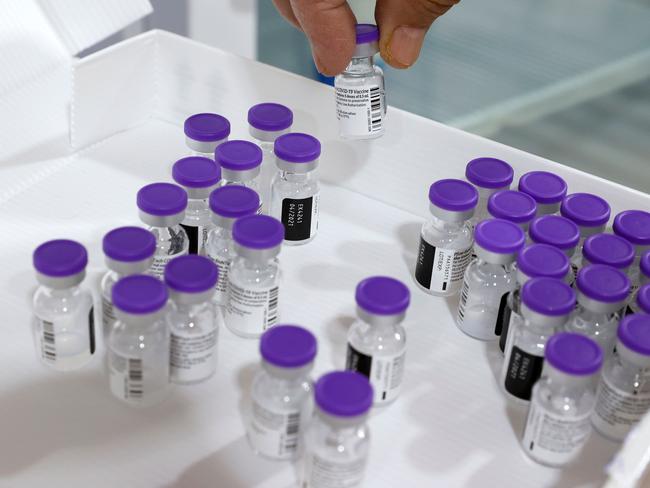Israel to vaccinate entire population by March
By the time Australia begins its vaccine rollout, more than two million Israelis will have received their COVID jabs under the country’s “world class” health system.
Coronavirus
Don't miss out on the headlines from Coronavirus. Followed categories will be added to My News.
Israel is on track to vaccinate its entire population by March, before Australia has even started.
An Australian living in Tel Aviv says that the country’s efficient health system had shown remarkable speed.
Paul Israel’s in-laws have already had their jab, and his wife was due to have one next week.
He said that Israel’s health system was world class compared to when he first moved there from Melbourne in 1983.

More than 1 million Israelis have already had the first dose of the Pfizer jab, with the country on track for 2 million vaccinations by the end of January.
The entire country’s 10 million residents could be vaccinated by March, in time for a national election, where President Benjamin Netanyahu is desperately trying to hold on to power.
But Mr Israel said that Israel’s competitive care set up, where four health maintenance organisations (HMOs) compete for patients across the country, was behind the efficiency.
“The HMOs, all four are national. When I moved here in 1983 it was a disgrace, there were queues, it was a mess,” he said.

“But they went digital early, all patient records are digital. In my neighbourhood, 20km south of Tel Aviv there are a few thousand families and there are two HMOs. They are cheap, the insurance is tens of dollars a month.
“This is one area that Israel has done really well in.”
Israel has been able to store and distribute the Pfizer vaccine quickly, even though it must be kept at -70 degrees Celsius.
The elderly and those with underlying health conditions have been prioritised, but some doses have been given to younger people, including carers, to avoid waste.
Mr Israel, who is the director of the Israel-Australia Chamber of Commerce, said that a major advertising campaign was run to encourage people to take the vaccine.
“There were people who were super cynical, but they did a campaign with celebrities on prime time TV and it turned around really quickly,” he said.
stephen.drill@news.co.uk



